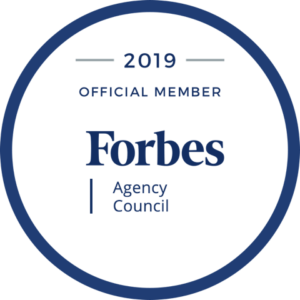If I had a dollar for every time I told a client, “well, that’s really not what this event calls for, attendees are coming for a celebratory occasion not a lecture” or “it’s not really your place to be talking about the speaker’s topic, you’re simply introducing them” or “what you’re describing you want to talk about is more appropriate for an external audience rather than an internal one,” I could retire!
 Speakers and presenters veer out of their lanes all the time. It’s as though an invitation to make a few remarks confers responsibility for the entire event on them. Or they feel as though, given the opportunity, they need to be as comprehensive as possible. Not so.
Speakers and presenters veer out of their lanes all the time. It’s as though an invitation to make a few remarks confers responsibility for the entire event on them. Or they feel as though, given the opportunity, they need to be as comprehensive as possible. Not so.
Here are 3 tips to help you stay in your lane:
1. Know your job. For every occasion when you need to speak, you have a “job.” By job, I mean a communication task: you might need to motivate, persuade, reassure, inform, update, or even introduce. There’s always a verb that describes your job, you might even have a primary and a secondary job. Knowing your job helps you paint the boundary lines of your lane. As you prepare your remarks, all you need to do is test what you’re planning to say against your job and stay inside those boundary lines.
2. Be #audience-centric, have perspective. Have you ever been to a fundraising gala, basically a party, where everyone is dressed up, having fun, socializing at tables with friends, and then the buzzkill comes – long narratives from the microphone about the organization’s serious work (and let’s be honest here, no one’s paying attention)? Yes, the work is important and yes, there’s a captive audience; but no, now’s not the time for the laundry list of “what we do.”
Or, have you ever gone to hear a special speaker and the person who introduces them not only delivers a nice intro, but then offers their own spin or summary on the speaker’s topic? To be polite, this is not only unnecessarily repetitive but it’s also not what the audience came to hear. To be less polite, this is inappropriate, often making audience members impatient and annoyed.
Perspective is key to staying in your lane. Perspective requires you to be audience-centric – to put the audience’s needs and experience ahead of your own. Without it, you risk alienating the audience.
3. Err on the side of #brevity. When in doubt, be brief – no one has ever annoyed or alienated an audience by being brief. If you’re not sure of your job or your lane, put your energy and efforts into being short and sweet. Sometimes speakers swerve out of their lanes because they’re not clear on who is supposed to say what and they want to make sure they cover everything. I hear you, I get it. Still, either coordinate with the other presenters ahead of time and/or let your audience ask you if they need more.
At the end of the day, it’s all about them – your audience. Stay in your lane so you don’t hit them!
- New Agey Advice for Nervousness - November 3, 2022
- Your Passion Can Go a Long Way Toward Building Connection - October 10, 2022
- Keep stage fright a private matter while you’re speaking on a public stage! - August 11, 2022



